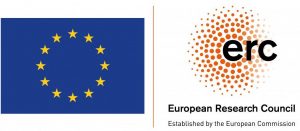
DiCED members presentations on Wednesday this week
This Wednesday, January 18th, DiCED’s Rachel Gibson and Esmeralda Bon will be presenting their work-in-progress at the Winter Workshop of the Democracy & Elections cluster at the University of Manchester (11am-4.30pm in Ellen Wilkinson A3.6).
Rachel will present about mapping regulatory interventions of data-driven campaigning, and Esmeralda will be talking about the potential for roles and socio-demographic characteristics of MPs to explain their activity on Facebook.
Operationalising Data-Driven Campaigning
Operationalising Data-Driven Campaigning: Designing a New Tool for Mapping and Guiding Regulatory Intervention
Abstract. Since the Cambridge Analytica scandal, governments are increasingly concerned about the way in which citizens’ personal data are collected, processed and used during election campaigns To develop the appropriate tools for monitoring and controlling this new mode of ‘data-driven campaigning’ (DDC) regulators require a clear understanding of the practices involved. This paper provides a first step toward that goal by proposing a new organizational and process-centered definition of DDC from which we derive a formative empirical index. The index is applied to the policy environment of a leading government in this domain – the European Union (EU) – to generate a descriptive ‘heat map’ of current regulatory activity toward DDC. Based on the results of this exercise we argue that regulation is likely to intensify on existing practices, and extend to cover current ‘cold spots’. Drawing on models of internet governance, we further speculate that this expansion is likely to occur in one of two ways. A ‘kaleidoscopic’ approach, in which current legislation extends to absorb DDC practices and a more ‘designed’ approach that involves more active intervention by elites, and ultimately the generation of a new regulatory regime.
MPs’ adoption and use of Facebook as representatives
What drives MPs’ adoption and use of Facebook as representatives: individual characteristics or roles?
Abstract. MPs perform several roles, which influence their behaviour. These roles and the party line constrain MPs’ communication about policy, but digital technology encourages individualistic communication. Using data about the Facebook communication of MPs on their Facebook pages during the EU referendum campaign, we re-examine the impact of electoral context and MPs’ roles on their use of social media. We examine to what extent MPs’ communication about the referendum on Facebook during the campaign can be linked to three key roles which MPs perform, namely that of the constituency representative, policy advocate and the partisan. Here we focus on the position of the MP in terms of whether they are on the frontbench or backbench, regardless of whether they are in opposition or government. We find that while age and length of service explain Facebook use, none of the characteristics explain their referendum communication. Additionally, the role of the MP does not predict their activity about the referendum on Facebook. These findings imply that the referendum presented an unusual electoral context for MP communication and they suggest the relevance of other, less-investigated factors.



0 Comments